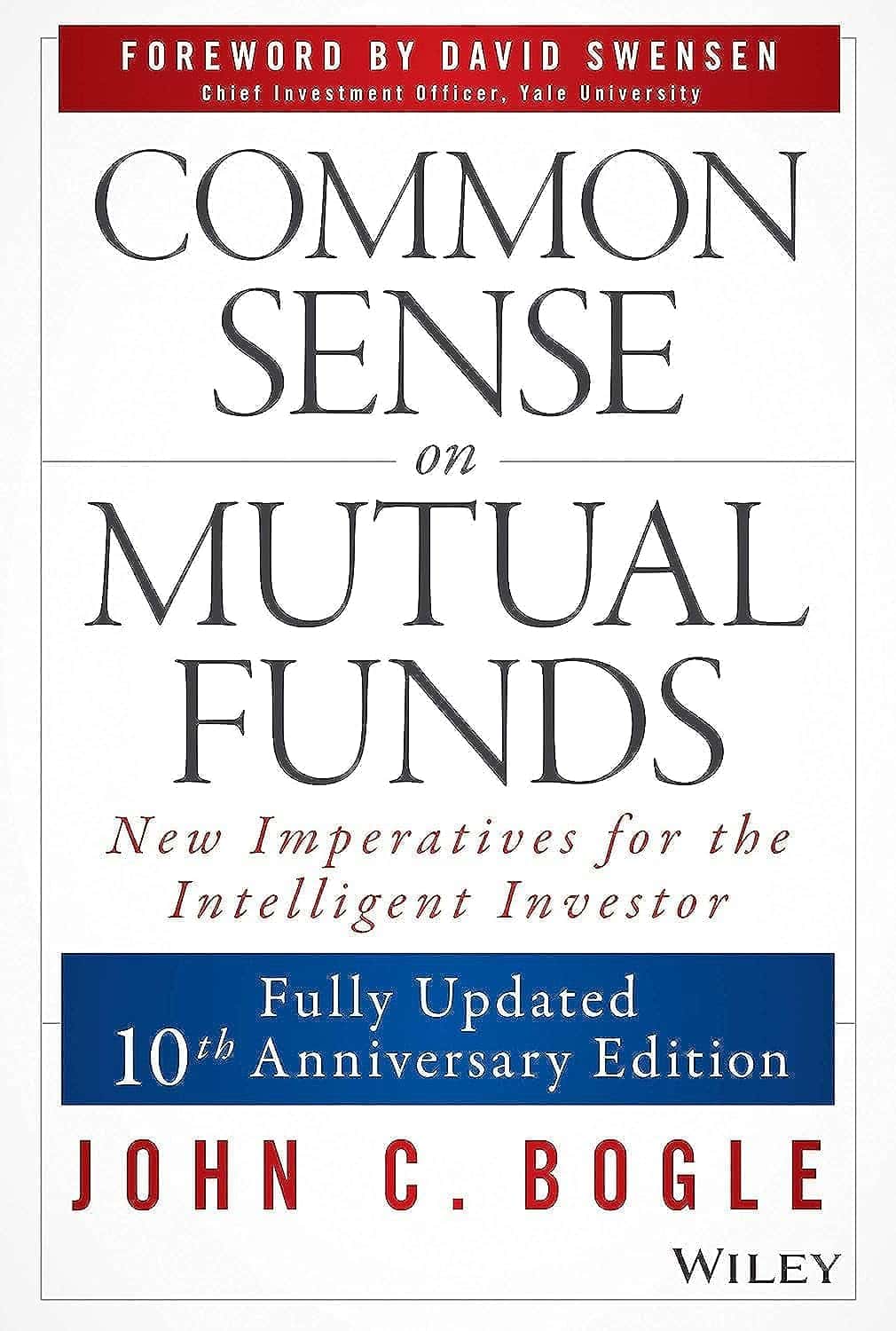Overview : Common Sense on Mutual Funds
-
Book Title: Common Sense on Mutual Funds
-
Author: John C. Bogle
-
Publication Date: October 2009
-
Rating: 5
-
price: $22.75
-
Pages: 659
About the Author
John C. Bogle, the founder of Vanguard Group, revolutionized the investment world with his advocacy for low-cost index funds. In Common Sense on Mutual Funds, Bogle distills decades of insights, championing simplicity, long-term strategies, and investor-focused principles to help readers make smarter financial decisions."
Introduction to Common Sense on Mutual Funds Book
In the ever-evolving world of finance and investment, few books have stood the test of time quite like John C. Bogle's "Common Sense on Mutual Funds: New Imperatives for the Intelligent Investor." As the founder of The Vanguard Group and a pioneer in investment management, Bogle offers a comprehensive guide that demystifies the complex realm of mutual funds, making it accessible to both novice and seasoned investors.
Originally published in 1999 and updated in subsequent editions to reflect the changing financial landscape, this book remains a cornerstone for those seeking clarity and direction in their investing journey. Bogle's straightforward, no-nonsense approach has revolutionized how we think about investing, particularly in the realm of mutual funds.
"The greatest enemy of a good plan is the dream of a perfect plan." - John C. Bogle
Common Sense on Mutual Funds Book Summary
The Importance of Costs in Investing
At the heart of Bogle's philosophy lies a crucial insight: the impact of costs on investment returns. With meticulous detail, he illustrates how management fees, sales charges, and other expenses can significantly erode investor returns over time. Bogle introduces the concept of "the tyranny of compounding costs," demonstrating how fees compound just as returns do, potentially costing investors a substantial portion of their gains.
The Case for Index Funds
Bogle's advocacy for index funds is a central theme of the book. He argues that because the stock market is efficient over the long term, attempting to outperform it through active management is often a losing battle. Index funds, which aim to match market performance rather than beat it, offer a more reliable path to investment success due to their lower costs and greater tax efficiency.
To support his case, Bogle presents a wealth of data, including historical performance comparisons and statistical analyses. He demonstrates how index funds have consistently outperformed a large majority of actively managed funds over extended periods, aligning with the principles of modern portfolio theory.
Understanding and Mitigating Risk
Bogle doesn't shy away from addressing the concept of risk in mutual fund investing. He emphasizes the importance of understanding different types of risks associated with various asset classes and investment strategies. The book advises investors to consider their risk tolerance and investment goals when constructing a diversified portfolio, highlighting the critical role that asset allocation plays in managing risk.
The Long-Term Perspective
A hallmark of Bogle's investment philosophy is the emphasis on long-term thinking. He cautions against the pitfalls of market timing and short-term speculation, urging investors to adopt a disciplined approach focused on long-term growth. Bogle's mantra of "stay the course" underscores the importance of maintaining a consistent investment strategy, even in the face of market volatility and economic uncertainty.
Analysis of Themes: Relevance in Today's Market
Despite being published over two decades ago, the principles outlined in "Common Sense on Mutual Funds" remain highly relevant in today's financial landscape. The rise of exchange-traded funds (ETFs) has expanded options for low-cost, passive investing, further validating Bogle's advocacy for such strategies.
In an era of increasing market complexity and volatility, Bogle's emphasis on cost efficiency, risk management, and long-term planning continues to resonate with investors. His insights on the benefits of patience and perseverance in investing are particularly valuable in today's fast-paced, information-saturated environment.
Writing Style: Clarity and Accessibility
Bogle's writing style is characterized by its clarity and accessibility. He breaks down complex financial concepts into digestible explanations, making the book approachable for readers of all levels of financial literacy. The use of real-world examples and historical data helps illustrate key points, while Bogle's passion for investor advocacy shines through in his engaging prose.
Strengths and Weaknesses of Common Sense on Mutual Funds
Strengths:
- Comprehensive analysis of mutual fund investing
- Strong emphasis on cost-awareness and its impact on returns
- Data-driven arguments supporting index investing
- Timeless principles applicable to various market conditions
Weaknesses:
- Some may find the focus on index investing repetitive
- Limited discussion of alternative investment strategies
- Older editions may not reflect the latest market developments
Common Sense on Mutual Funds Related Books
While "Common Sense on Mutual Funds" shares similarities with other investment classics like Benjamin Graham's "The Intelligent Investor," Bogle's work stands out for its laser focus on mutual funds and index investing. Compared to more recent works like Burton Malkiel's "A Random Walk Down Wall Street," Bogle's book offers a deeper dive into the mechanics of mutual funds and the fund industry itself.
Highlights from Common Sense on Mutual Funds by John C. Bogle
Index Fund Advantage: Emphasizes the long-term benefits of low-cost index funds over actively managed funds.
Cost Matters: High fees and expenses erode investment returns, so minimizing costs is essential for growth.
Long-Term Focus: Successful investing is about patience; frequent trading reduces returns.
Market Efficiency: The stock market reflects available information, making it difficult for active managers to consistently outperform.
Diversification: Spreading investments reduces risk and helps build a balanced portfolio.
Investment Discipline: Avoid emotional decisions and stay the course with a well-defined strategy.
Simplicity Wins: Simple, low-cost strategies outperform complex, costly investments over time.
Conclusion: A Must-Read for Every Investor
"Common Sense on Mutual Funds" is an indispensable guide for anyone looking to build wealth through mutual fund investing. Bogle's unwavering commitment to advocating for the individual investor shines through in his clear and compelling arguments for low-cost, passive investing. His comprehensive analysis of the mutual fund industry, coupled with practical guidance on risk management and long-term planning, makes this book an essential read.
Whether you're a beginner or an experienced investor, Bogle's wisdom offers a roadmap to achieving financial success with discipline and common sense. In an era of increasing financial complexity, this book's timeless principles serve as a beacon for those navigating the waters of personal finance and investing.





